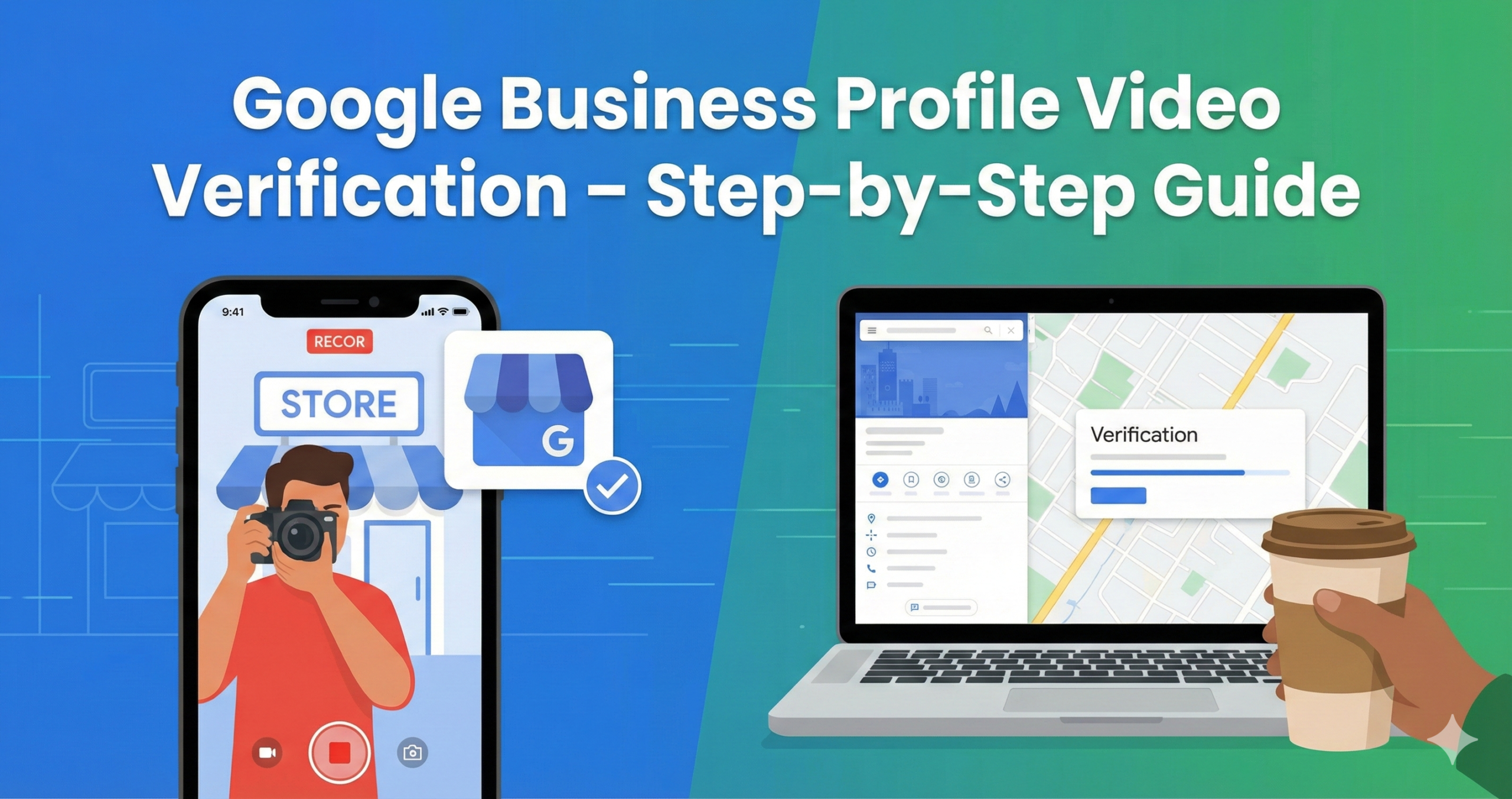Why AI Is Revolutionizing Digital Marketing
Artificial intelligence and digital marketing are transforming how businesses engage with their audiences. AI marketing leverages data and advanced analytics to provide a competitive edge. Here’s a quick rundown:
1. AI automates content creation: Save time by letting AI generate blog posts and social media updates.
2. Personalized marketing: AI tailors recommendations for each user, boosting engagement.
3. Real-time analytics: Get instant insights into campaign performance, enabling quick adjustments.
4. Predictive analytics: Forecast future trends and customer behaviors to stay ahead.
The digital landscape is rapidly evolving, and artificial intelligence is at the forefront of this change. AI marketing uses sophisticated data analytics to help businesses make smarter decisions and deliver highly personalized customer experiences. Whether through automated content creation, real-time performance insights, or predictive analytics, AI is enabling marketers to operate with greater efficiency and accuracy.
My name is Ahmed Elmahdy, founder and CEO of Rocket Launch Media. With over a decade of experience in artificial intelligence and digital marketing, I have led my company to achieve significant growth for our clients through innovative AI-driven strategies.

Simple artificial intelligence and digital marketing word guide:
Understanding Artificial Intelligence in Digital Marketing
How AI is Used in Digital Marketing
Artificial intelligence is changing digital marketing by enabling businesses to make automated decisions based on real-time data. AI marketing leverages powerful data analysis tools to understand audience behavior, economic trends, and more. Here’s how AI is commonly used:
- Data Collection and Analysis: AI sifts through vast amounts of data to identify audience trends and economic trends. This helps marketers understand what their audience wants and how to meet those needs efficiently.
- Automated Decisions: AI tools can make quick decisions on tasks like ad optimization and content scheduling, allowing marketers to focus on strategy.
- Personalized Customer Experiences: AI-powered systems can tailor user experiences by analyzing customer behavior. For example, recommendation engines suggest products based on past purchases, while chatbots provide personalized support.
Benefits of AI in Digital Marketing
The benefits of integrating AI into your digital marketing strategy are immense. Here are some key advantages:
- Personalized Experiences: AI can create highly personalized content for users, improving engagement and conversion rates.
- Efficient Data Processing: AI handles large datasets quickly and accurately, providing data-driven insights that can refine marketing strategies.
- Real-Time Analytics: AI provides instant feedback on campaign performance, allowing for quick adjustments and optimizations.
- Predictive Analytics: By forecasting future trends and customer behaviors, AI helps businesses stay ahead of the competition.
- Customer Engagement: Tools like chatbots offer 24/7 customer support, enhancing user satisfaction and loyalty.
- Operational Efficiency: Automating repetitive tasks saves time and resources, enabling marketers to focus on creative and strategic activities.

Artificial intelligence is not just a buzzword; it’s a powerful tool that can revolutionize your marketing efforts. By leveraging AI, you can gain deeper insights, make smarter decisions, and deliver exceptional customer experiences.
Next, we’ll dive into the key applications of AI in digital marketing, exploring how specific tools and strategies can be implemented for maximum impact.
Key Applications of AI in Digital Marketing
AI-Powered Chatbots
AI-powered chatbots are revolutionizing customer support and engagement. These virtual assistants provide 24/7 availability, ensuring customers receive immediate assistance regardless of the time of day. For instance, National Australia Bank uses AI chatbots to offer personalized product recommendations and handle customer inquiries efficiently.
Chatbots can answer frequently asked questions, process orders, and even guide users through complex processes. This not only improves customer satisfaction but also frees up human agents to handle more intricate queries.
Predictive Analytics
Predictive analytics is a game-changer for understanding future trends and customer behavior. By analyzing past data, AI can forecast market trends and predict customer actions, such as potential churn. This allows businesses to make data-driven decisions to retain customers and optimize marketing strategies.
For example, AI can identify which customers are likely to disengage and provide targeted content to re-engage them. This proactive approach helps in maintaining a loyal customer base and improving overall satisfaction.
Content Creation and Curation
Creating high-quality content is a significant challenge for many marketers. AI tools like natural language generation (NLG) can produce engaging content, including blog posts and social media updates, with minimal human intervention. Companies like Persado use AI to craft compelling email subject lines and ad copy that resonate with audiences.
AI-driven content creation ensures consistency and saves time, allowing marketers to focus on strategy and creativity. Additionally, AI can curate content by analyzing user behavior and preferences, delivering personalized recommendations that improve user experience.
Media Buying and Ad Targeting
AI is transforming media buying and ad targeting by optimizing ad placements and budgets. Machine learning algorithms can analyze user data to determine the best times to display ads and the most effective formats. This ensures ads reach the right audience at the right time, maximizing ROI.
For instance, Pattern89 uses AI to automate the bidding process for PPC campaigns, adjusting bids in real-time for optimal results. This level of automation reduces manual effort and improves campaign performance.

By leveraging AI in these key areas, businesses can enhance their marketing strategies, boost customer engagement, and drive better results. Next, we’ll explore how to implement AI in your digital marketing strategy effectively.
Implementing AI in Your Digital Marketing Strategy
Choosing the Right AI Tools
Selecting the right AI tools is crucial for a successful integration into your digital marketing strategy. Start by identifying your goals and areas where AI can make the most impact. Your current tools may already have AI features. For example, HubSpot offers an integrated chatbot builder that can qualify leads and manage customer interactions without any coding.
Consider whether you need an out-of-the-box solution or a custom one. Out-of-the-box AI solutions, like Jasper, ChatGPT, or Google Bard, are ready to deploy and can quickly improve your marketing efforts. These tools are excellent for tasks like content creation, customer interaction, and data analysis.
If you need something more custom, a custom solution might be the way to go. Using APIs to integrate open-source AI like Llama 2 allows you to train the AI on your proprietary data. This approach is more complex and requires collaboration with consultants or your IT department, but it can provide long-term benefits and a competitive edge.
Overcoming Challenges
Implementing AI isn’t without its problems. Here are some common challenges and how to tackle them:
Data Quality and Privacy Concerns: AI relies on vast amounts of high-quality data. Ensuring data accuracy and maintaining customer privacy is paramount. Regulations like GDPR require businesses to handle data responsibly. Invest in robust data management practices and compliance measures to protect customer information.
Integration with Legacy Systems: Many businesses operate on legacy systems that may not be compatible with modern AI technologies. This can create integration issues. Focus on upgrading your infrastructure and consider scalable AI projects that can gradually expand as you see success.
Workforce Training: Your team needs to be equipped to work alongside AI systems. Invest in training programs to upskill your employees. This will help them leverage AI tools effectively and understand their limitations.
Scalable AI Projects: Start small with scalable AI projects that demonstrate clear ROI. For instance, you could begin by using AI-powered chatbots for customer service or predictive analytics for marketing campaigns. As these projects prove successful, you can expand your AI capabilities.
Conversational Intelligence: Tools like HubSpot Sales Hub offer conversational intelligence capabilities. These tools analyze customer interactions to provide data-driven insights, helping your team improve performance and customer engagement.
By addressing these challenges head-on, you can smoothly integrate AI into your digital marketing strategy, enhancing efficiency and driving better results.
Next, we’ll look at future trends in AI and digital marketing to keep you ahead of the curve.
Future Trends in AI and Digital Marketing
AI in 2024 and Beyond
Artificial intelligence is evolving rapidly, and its impact on digital marketing is profound. By 2024 and beyond, we can expect several key trends to shape the landscape of artificial intelligence and digital marketing.
AI Evolution and Emerging Tools
AI tools are becoming more sophisticated and accessible. Platforms like ChatGPT and Google Bard are continuously improving, offering more advanced capabilities for content creation, customer interaction, and data analysis. These tools are not just for large enterprises; small businesses can also leverage them to stay competitive.
Emerging tools like Pattern89 are revolutionizing ad targeting by using machine learning algorithms to optimize ad performance in real-time. This means more efficient ad spend and better ROI.
Personalized Marketing
Personalization is no longer optional; it’s expected. AI enables hyper-personalized marketing by analyzing vast amounts of data to understand individual customer preferences. For instance, AI can tailor email campaigns based on customer behavior, ensuring that each recipient gets content that resonates with them.
According to McKinsey, 71% of consumers expect personalization from the businesses they interact with. AI makes it feasible to meet these expectations at scale.
Dynamic Content
Dynamic content is another area where AI shines. AI can create and modify content in real-time based on user interactions. For example, a website can display different products or articles to different users based on their browsing history, making the user experience more engaging and relevant.
Customer Experience
AI-powered chatbots are changing customer service by providing 24/7 support. These chatbots can handle a wide range of queries, from simple FAQs to complex issues, improving customer satisfaction and freeing up human agents for more critical tasks.
Companies like National Australia Bank have successfully implemented AI chatbots to improve customer support, providing personalized product recommendations and resolving issues quickly.
Ad Targeting and Automation
Ad targeting is becoming more precise with AI. Machine learning algorithms analyze user data to determine the best ad placements and timings. This leads to higher engagement rates and better conversion.
Automation is another significant trend. AI can automate repetitive tasks like email marketing, social media scheduling, and lead generation. Tools like HubSpot and Jasper can handle these tasks efficiently, allowing marketers to focus on strategy and creativity.
Lead Generation
AI is also improving lead generation by identifying potential customers more accurately. Predictive analytics can forecast which leads are most likely to convert, enabling sales teams to prioritize their efforts effectively.
Social Media Scheduling
AI tools can optimize social media scheduling by determining the best times to post content for maximum engagement. This ensures that your posts reach the largest possible audience, increasing visibility and interaction.
Analytics and Reporting
AI-driven analytics tools provide real-time insights into marketing performance. These tools can identify trends and patterns that might be missed using traditional methods. With AI, marketers can make data-driven decisions to optimize their strategies continuously.
In summary, the future of artificial intelligence and digital marketing is bright. By staying ahead of these trends, businesses can improve their marketing efforts, improve customer experiences, and achieve better results.
Next, we’ll address some frequently asked questions about artificial intelligence and digital marketing to help you understand its practical applications further.
Frequently Asked Questions about Artificial Intelligence and Digital Marketing
How is AI used in digital marketing?
AI is changing digital marketing by enabling automated decisions and data analysis at unprecedented speeds. Here are some key applications:
Automated Decisions: AI can automate repetitive tasks like email marketing, social media scheduling, and lead generation. Tools like Rocket Launch Media’s AI Suite make it easy to handle these tasks efficiently.
Data Analysis: AI can sift through large datasets to uncover valuable insights. This helps marketers understand audience trends and optimize their strategies. For example, AI-driven tools can analyze customer behavior to predict future actions, enhancing targeting and personalization.
Audience Trends: AI analyzes customer interactions to identify patterns and preferences. This enables businesses to tailor their marketing efforts to meet specific needs, improving engagement and conversion rates.
Is AI going to replace digital marketing jobs?
The fear that AI will replace jobs is common, but the reality is more nuanced. AI is more likely to simplify tasks and improve job efficiency rather than replace jobs outright. Here’s how:
Automation: AI handles repetitive and time-consuming tasks, freeing up marketers to focus on more strategic and creative activities. This not only increases productivity but also allows for more innovation.
Task Simplification: With AI managing the data-heavy tasks, marketers can spend more time on planning and creativity. This improves the overall quality of marketing campaigns.
Job Improvement: AI provides data-driven insights that help marketers make better decisions. By leveraging AI tools, marketers can optimize their strategies and achieve better results.
What are the benefits of AI in digital marketing?
Integrating AI into digital marketing offers numerous benefits:
Personalized Experiences: AI enables hyper-personalization by analyzing vast amounts of data to understand individual customer preferences. This leads to more relevant and engaging marketing campaigns.
Data Processing: AI can process large datasets quickly and accurately, providing valuable insights that would take humans much longer to uncover. This improves decision-making and strategy optimization.
Real-Time Analytics: AI-driven analytics tools offer real-time insights into marketing performance. This allows marketers to adjust their strategies on the fly, ensuring optimal results.
By leveraging AI, businesses can improve customer engagement, operational efficiency, and ultimately, their ROI.
For more on how AI can transform your digital marketing strategy, stay tuned for the next section.
Conclusion
Embracing artificial intelligence in digital marketing is not just a trend; it’s a necessity. AI is revolutionizing how we interact with customers, optimize campaigns, and make data-driven decisions. By leveraging AI, businesses can stay relevant and achieve their marketing goals more efficiently.
Staying Relevant
As the digital landscape evolves, staying relevant means adopting the latest technologies. AI tools can help you understand audience trends, personalize experiences, and predict future behaviors. This keeps your marketing efforts fresh and aligned with what your customers want.
Achieving Marketing Goals
AI enables you to automate repetitive tasks, analyze large datasets, and make informed decisions. This leads to more effective campaigns, higher engagement rates, and better ROI. Whether it’s through AI-powered chatbots, predictive analytics, or content creation, the benefits are clear.
At Rocket Launch Media, we specialize in using AI to drive growth and generate qualified leads. Our expertise in PPC, SEO, and social media advertising ensures that you get tangible results like sales and revenue, not just metrics.
Ready to transform your digital marketing strategy with AI? Learn more about our services and see how we can help you achieve your goals.
Embracing AI is your ticket to staying ahead in the competitive world of digital marketing. Don’t just follow the trend; lead it.








